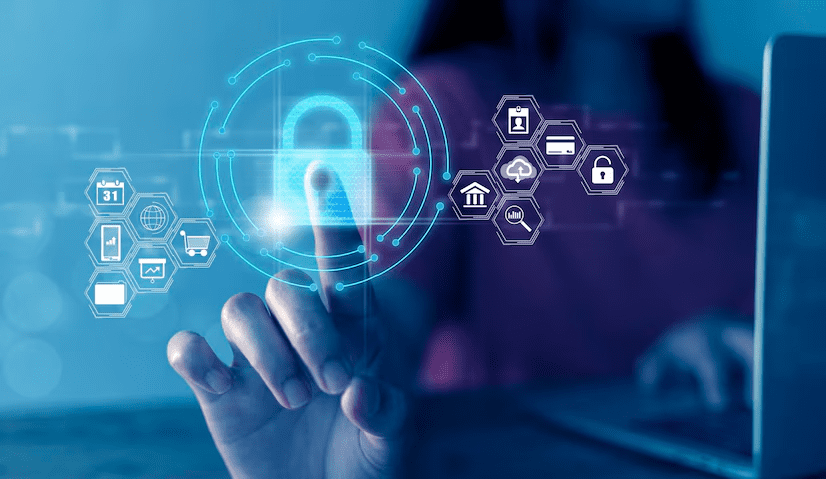Cybersecurity
We live in an unprecedented era of connectivity. Our devices are interlinked, from smartphones and laptops to smart refrigerators and thermostats. However, this connectivity also brings significant security risks. How can we safeguard our devices and personal data in an increasingly digital world? In this article, we’ll explore some essential tips to ensure the security of your devices.
1. Keep Your Devices Updated
The first line of defense against cyber threats is to keep your devices up to date. This includes operating system updates, app updates, and firmware updates. Manufacturers often release updates to address known security vulnerabilities. Therefore, make sure to enable automatic updates on your devices and apps.
2. Use Strong and Unique Passwords
It’s tempting to use simple passwords or reuse the same password across multiple accounts. However, this practice is risky. Opt for complex and unique passwords for each account. Consider using a reliable password manager to help you remember and manage your passwords.

3. Enable Two-Factor Authentication (2FA)
Two-factor authentication adds an extra layer of security. In addition to your password, you’ll need a code generated on your smartphone or another device to log in. This makes unauthorized access to your account more difficult, even if someone has your password.
4. Secure Your Wi-Fi Network
Your Wi-Fi connection is the access point to your linked gadgets. Be sure to change the default router password and use WPA3 encryption whenever possible. Also, avoid sharing your Wi-Fi password with unauthorized individuals.
5. Beware of Links and Attachments
Phishing is one of the top online threats. Exercise prudence when selecting hyperlinks in emails, chats, or social platforms. Verify that the sender is legitimate and avoid downloading suspicious attachments.
6. Use a Trusted Antivirus Solution
Good antivirus software can detect and block threats before they reach your devices. Choose a reliable solution and keep it updated.
7. Regularly Back Up Your Data
Never underestimate the importance of backups. If a device is compromised, you can restore your data from a recent backup. Use cloud storage services or external drives to back up regularly.
8. Be Wary of Public Wi-Fi Networks
Public Wi-Fi networks offer convenience, yet they can pose hazards. When linking to a public access point, refrain from accessing confidential data like online banking or personal emails. If feasible, utilize a virtual private network (VPN) to cipher your internet traffic and safeguard your data from intrusive views.

9. Secure Your Smart Home Devices
Smart home gadgets, from smart doorbells to voice-controlled assistants, are becoming increasingly popular. Nonetheless, they can also be susceptible to assaults. Change default passwords on these devices, keep their firmware updated, and segment your home network to isolate smart devices from critical systems.
10. Educate Yourself and Your Family
Cybersecurity is a team effort. Instruct yourself and your kin about secure internet habits. Discuss the risks of clicking on suspicious links, oversharing personal information, and falling for phishing scams. By raising awareness, you’ll collectively create a safer digital environment.
11. Regularly Review App Permissions
Apps on your smartphone often request various permissions, such as access to your location, contacts, or camera. Take a moment to review these permissions. Only grant access when necessary, and be cautious if an app asks for more permissions than it logically requires.
12. Backup Your Mobile Devices
Our smartphones and tablets contain a wealth of personal data. Regularly back up your mobile devices to a secure location, such as cloud storage or an external hard drive. In case of loss, theft, or damage, you’ll be able to restore your data without much hassle.
13. Stay Informed About Security Threats
Cyber threats evolve constantly. Stay informed by following reputable technology news sources, security blogs, and official announcements from software vendors. Being aware of the latest vulnerabilities and attack techniques will empower you to take proactive measures.
14. Implement Security Measures for Children
If you have children using devices, ensure their safety online. Set up parental controls, limit screen time, and educate them about responsible internet use. Promote transparent dialogue so they feel at ease sharing any internet worries with you.
Wrapping Up
As we navigate the interconnected digital landscape, remember that cybersecurity isn’t a one-time task—it’s an ongoing commitment. By adopting these practices, you’ll build a stronger defense against cyber threats. So, keep your devices updated, use strong passwords, and stay vigilant. Happy browsing, and may your digital journey be secure! 🛡️
Did you like this topic? See more content about: Cybersecurity
Source: medium





